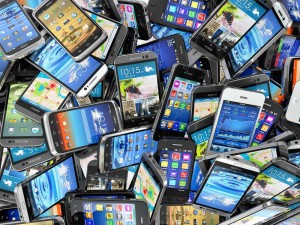
Do you love getting text messages? Well, here is one reason to not love them – Stagefright. It’s a vulnerability that was recently exposed on the Android OS.
Despite its rather frightening name, Stagefright started its Android life innocently enough. It is simply the name of a media playback library buried deep inside Google’s mobile OS. The vulnerability that is its namesake, which takes advantage of flaws within the open-sourced code mobile OS, was discovered last month by researchers at a security firm named Zimperium.
Capsule is ZoneAlarm’s powerful mobile security product, designed to provide you with privacy and security on your Android device, especially on public WiFi.
The world is moving to mobile, but the world of mobile threats is expanding every day. Apps that track you, hackers that eavesdrop on your communications, and app vulnerabilities that can expose your device to criminals are just some of the issues that threaten privacy on your mobile device. ZoneAlarm Capsule is designed to protect you from all these threats, so you can regain your privacy.
We talked with Uri Braun, one of ZoneAlarm Capsule’s R&D Managers, to learn more about how ZoneAlarm Capsule protects people’s privacy and security on their mobile device. Read more…
If you are one of 600 million Samsung device users worldwide, your mobile security is at risk. That’s because all Samsung devices (yes, even the snazzy new Galaxy S6) are vulnerable to man-in-the-middle attacks on public WiFi. The vulnerability is due to a problem with SwiftKey, a keyboard app that’s preinstalled on all Samsung android devices.
Though Samsung is working feverishly to release a patch, we highly recommend that you protect yourself right now by installing a mobile security app such as ZoneAlarm Capsule that blocks hackers from communicating with your device. Make sure the app you choose includes a VPN that encrypts all incoming and outgoing communications on Public WiFi.
As essential as internet security is every single day of the year, June is Internet Security Month, which makes it the perfect time to review what it means to keep your computers, tablets and smartphones as secure as possible.
As you relax into summer, make sure that you are not relaxing your policies of vigilance when it comes to online safety for you and your family.
Your privacy is only as safe as your weakest password.
Ok, so maybe that’s a bit of an exaggeration, but let’s face it. The strength of your passwords is important. If it wasn’t, why would so many people be interested in hacking them!
Passwords keep your private stuff private. They make sure that the emails sent from your account are actually written by you. They make sure that the Posts, Likes and Comments that appear on your Facebook page are authentic. They keep your Dropbox photos private. They make sure your coffee card is used exclusively to buy frothy sweet drinks for the people you want to treat.
Of course, passwords also prevent criminals from draining your bank account, running up charges on your credit cards, and causing all sorts of other mischief.
Clearly, having a strong password and keeping it secure is important. Which leads to the question – how can you create rock-solid passwords and keep them protected? Here are 14 simple steps to help you out.